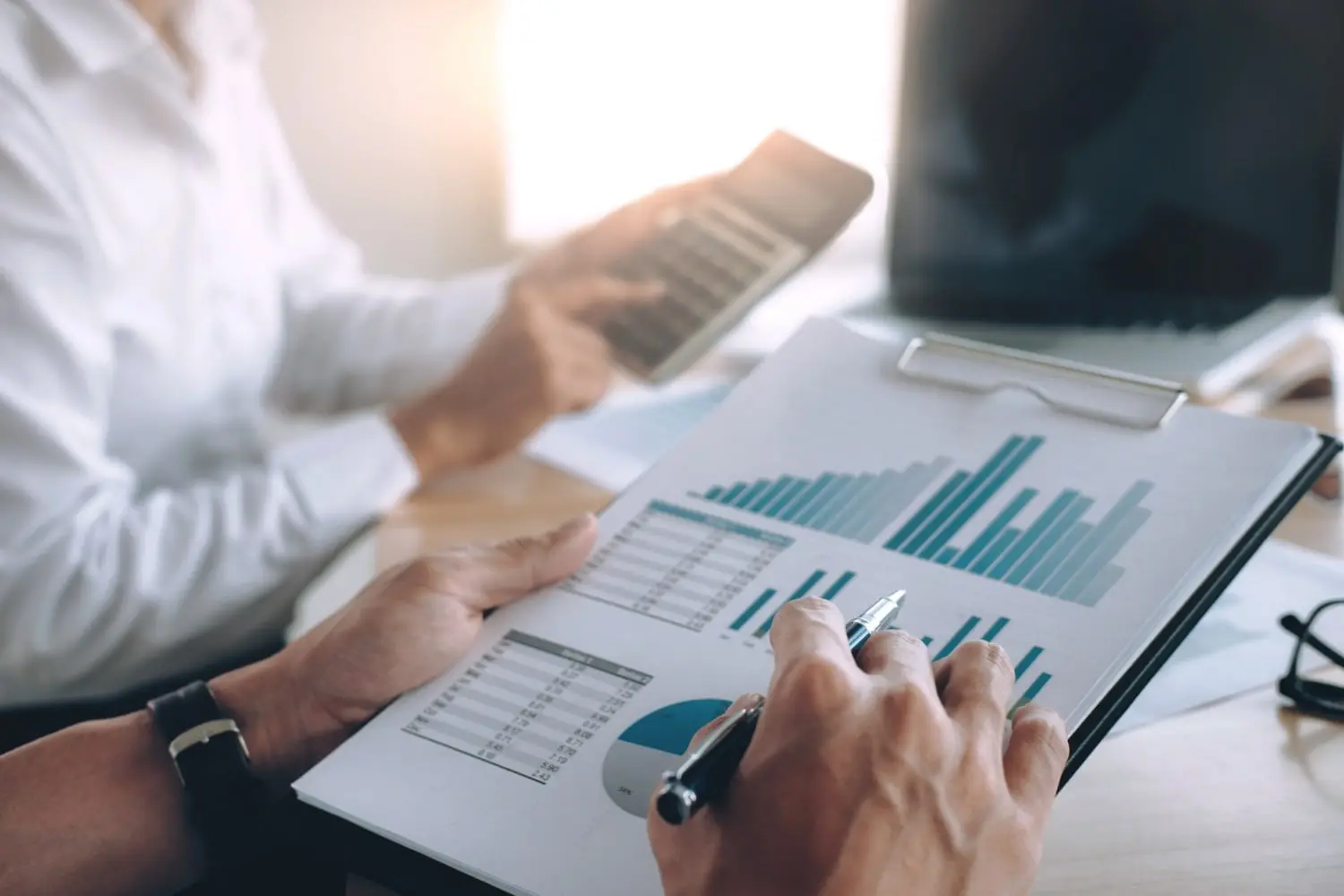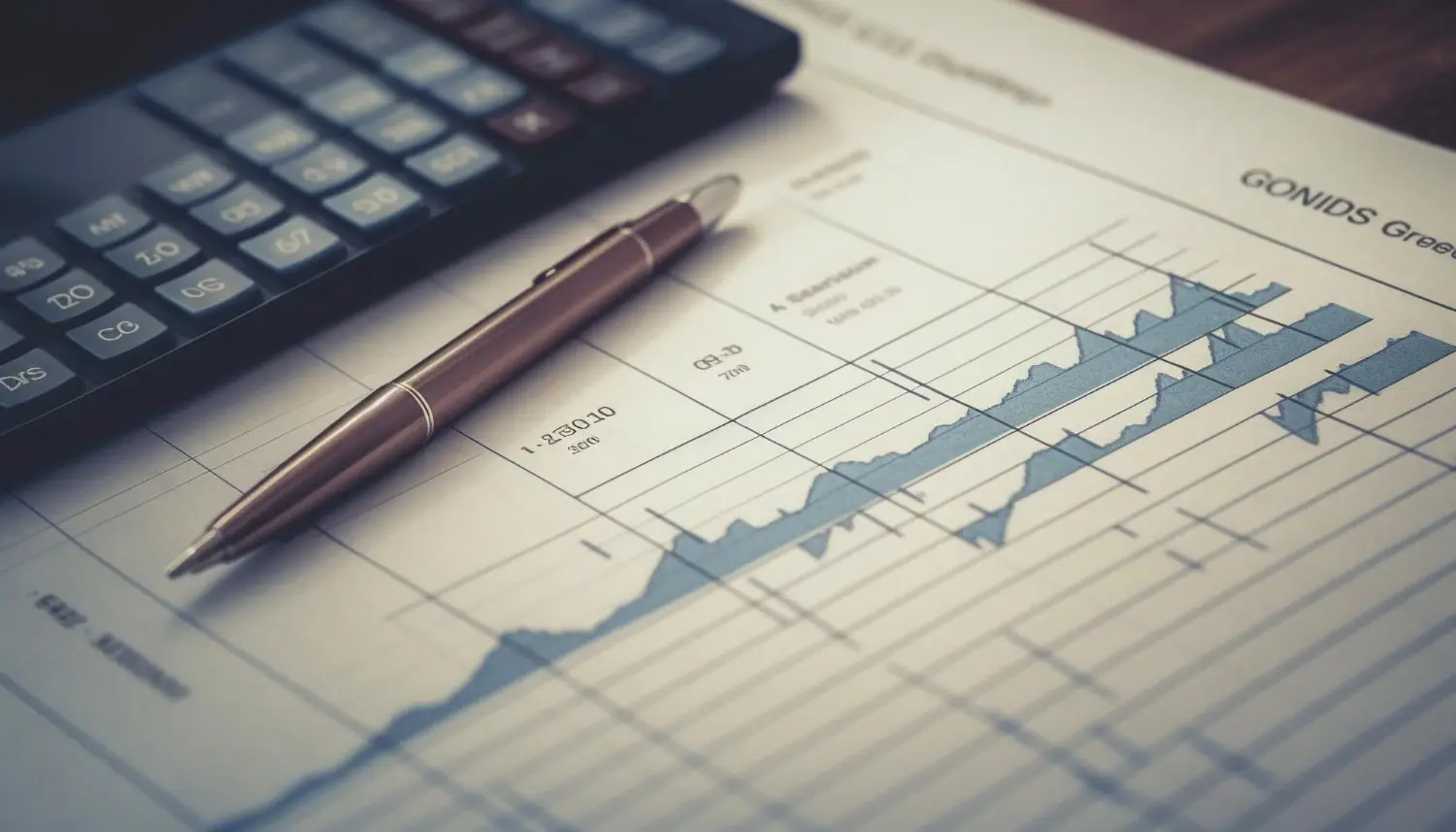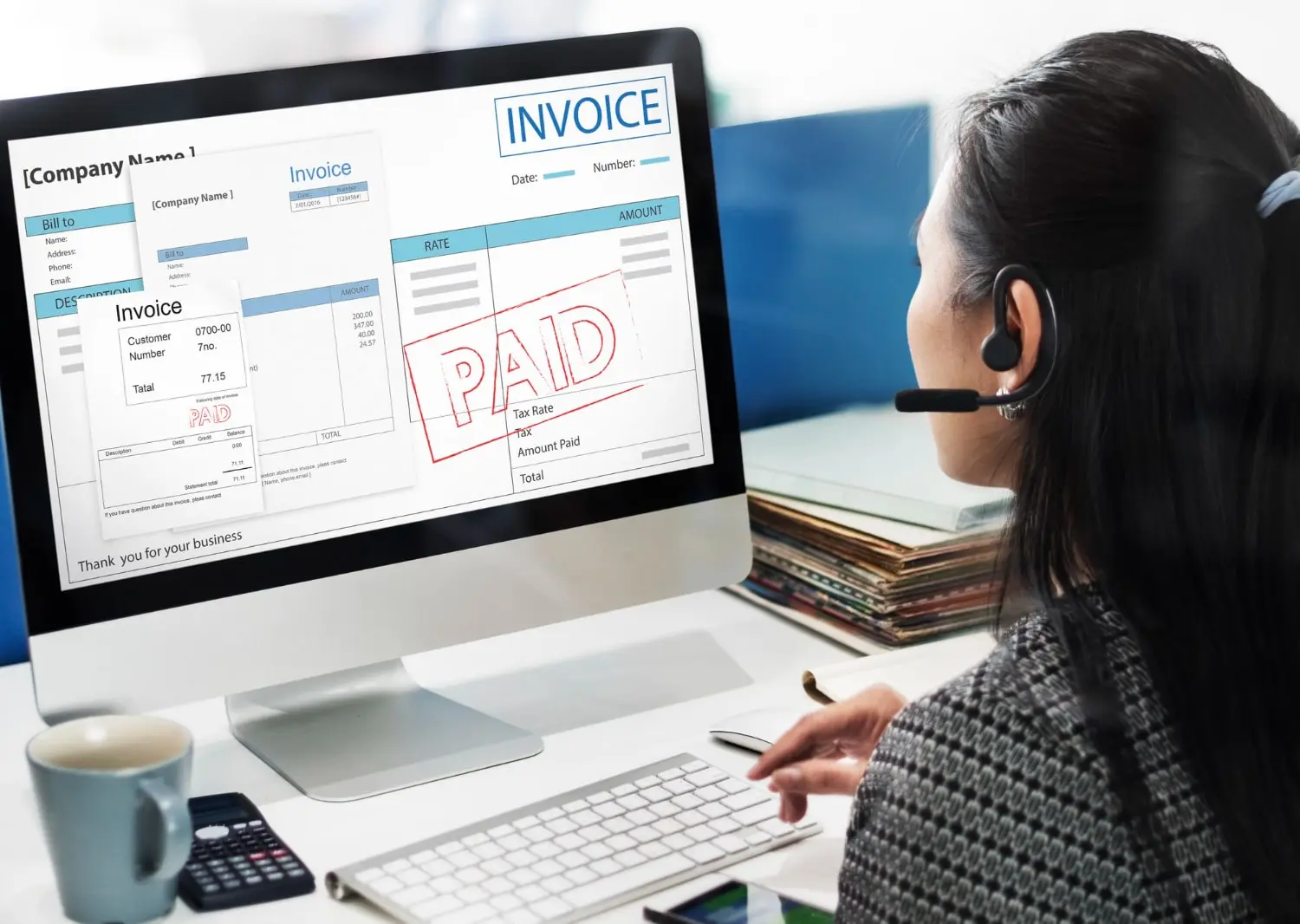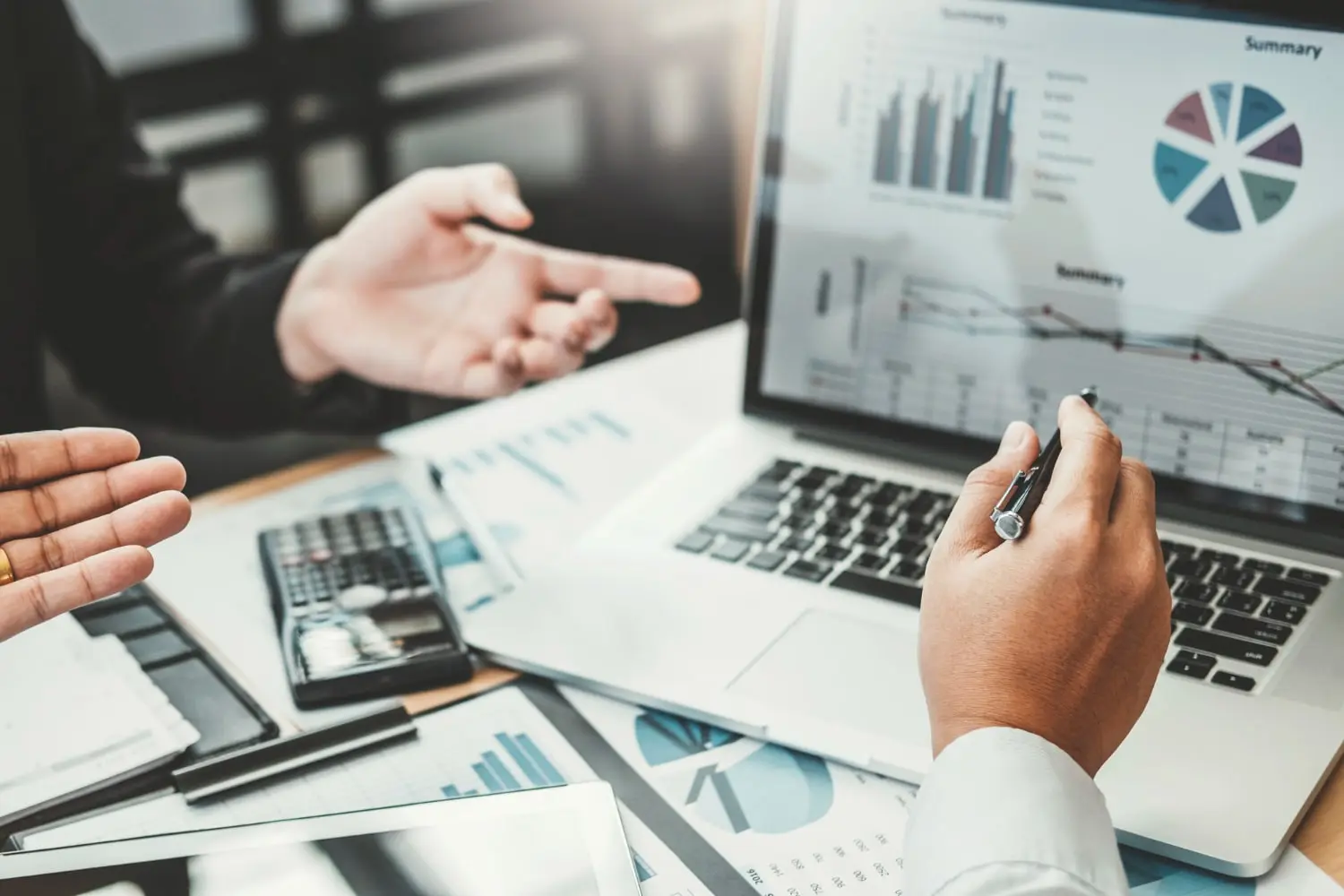What is a Creditor in Business?
Mar 01, 2024

This financial relationship underscores a fundamental aspect of business transactions, as entities often rely on credit arrangements to facilitate operations and foster growth.
The significance of comprehending the role of creditors cannot be overstated. Creditors profoundly influence a company's financial health, liquidity, and overall stability. Whether in the form of trade creditors, financial institutions, or suppliers, these entities contribute to the financial ecosystem of a business, and their impact extends beyond mere monetary transactions.
In this article, we will explore the types of creditors, their relationships with businesses, and their broader implications for financial management. We aim to unravel the multifaceted role creditors play in shaping enterprises' fiscal landscapes.
Key Takeaways
- Business creditors play a crucial role in shaping the financial landscape of enterprises, impacting day-to-day operations, financial health, and overall stability.
- Trade creditors, financial institutions, suppliers, leasing companies, factor companies, and trade credit insurance providers are examples of business creditors.
- Business creditors significantly influence a company's financial health, as the terms and conditions they set affect the business's ability to secure credit.
- Creditors must effectively manage bad debts, which involves actions such as thorough credit checks, clear credit policies, regular reviews of outstanding balances, legal instruments, and engagement with commercial debt recovery agencies.
What Role Do the Business Creditors Play?
Business creditors play a pivotal role in the intricate financial landscape of enterprises, contributing significantly to the day-to-day operations, financial health, and overall stability of a business. These entities, which can be trade creditors, financial institutions, or suppliers, participate in a dynamic financial ecosystem beyond mere monetary transactions.
At its core, the relationship between a business and its creditors is built upon credit arrangements, wherein goods, services, or financial resources are provided to the business with an expectation of repayment within an agreed-upon timeframe. This credit dynamic is fundamental to business transactions, allowing entities to facilitate operations, manage cash flow, and foster growth.
- One of the primary roles of business creditors is influencing a company's financial health. The terms and conditions set by creditors impact a business's ability to secure credit, manage commercial debts effectively, and maintain a positive creditworthiness profile. Understanding and navigating these credit arrangements are crucial for businesses seeking to optimise their financial position and access additional resources for expansion.
- Creditors significantly impact a company's liquidity. Effective management of credit terms ensures that a business can promptly settle its financial obligations, contributing to operational continuity and overall financial stability. Trade creditors, often representing suppliers, play a direct role in this liquidity equation, and their terms can influence the speed at which a business can convert sales into cash.
- The relationship with creditors also extends to the broader business community. Maintaining positive relationships with these entities enhances a company's credibility, opening doors to more favourable credit terms, strategic partnerships, and potential investment opportunities. Conversely, a strained relationship with creditors may lead to less favourable credit terms and potential challenges in securing financial support.
Types of Business Creditors
Understanding the creditor types is essential for effective financial management and strategic decision-making:
- Trade creditors - suppliers from whom a business procures goods or services on credit terms. Trade creditors represent a common form of short-term financing, allowing businesses to manage cash flow efficiently.
- Financial institutions- banks and other financial entities provide businesses with credit facilities, loans, and overdrafts. These financial creditors support capital-intensive projects, expansion, and day-to-day operations.
- Suppliers and service creditors - beyond trade creditors, businesses may have suppliers and service providers who extend credit for essential services or supplies. This type of creditor relationship is integral to ongoing operations.
- Leasing companies - businesses often lease equipment or property, making leasing companies creditors. The periodic lease payments represent a form of credit extended to the business.
- Factor companies - businesses may engage with factor companies to manage their accounts receivable. Factors advance funds against outstanding invoices, providing businesses with immediate cash flow and turning them into creditors.
- Trade credit insurance providers - businesses may opt for trade credit insurance to mitigate the risk of customer non-payment. The insurance provider becomes a creditor by underwriting the credit risk associated with the business's customers.
Short-Term Creditors
Short-term creditors are entities that provide financial support to a business for a brief period, typically within one fiscal year. These creditors include trade creditors, suppliers, and short-term lenders. Trade creditors furnish goods and services to a business on credit, creating a short-term liability. The suppliers, who extend credit terms for acquiring inventory or materials, fall into this category.
Long-Term Creditors
Conversely, long-term creditors engage in credit arrangements spanning beyond a single fiscal year, providing sustained financial backing for the business. Notable long-term creditors comprise financial institutions offering loans for capital expenditures, expansion, or infrastructure development.
Creditor - Commercial Debtor Relationships
Commercial creditors, typically entities or individuals supplying goods, services, or financial resources, extend a line of credit to commercial debtors, trusting in the latter's commitment to settle debts within agreed-upon terms. These relationships are built on mutual trust, often established through credit agreements and contractual arrangements. The key fundamentals for stable relationships are:
- One of the important bases in these relationships is the management of credit terms. Commercial creditors may set specific payment periods, influencing the debtor's cash flow management and financial stability. Delays in repayment can strain these relationships, impacting the creditor's liquidity and potentially leading to financial setbacks.
- Communication plays a pivotal role in maintaining healthy debtor-creditor relationships. Clear and transparent communication channels can help address potential issues proactively, whether related to payment delays, financial challenges, or changes in business circumstances. Regular updates on payment schedules and any unforeseen challenges foster understanding between the parties involved.
- The issue of defaults is a looming concern in these relationships. Commercial debtors failing to meet their financial obligations can create a ripple effect. Creditors may face disruptions in their cash flow, increased financial risk, and the need for more stringent credit control measures.
- Commercial creditors often employ risk mitigation strategies, such as credit checks and periodic assessments of debtor financial health. On the flip side, commercial debtors must balance their financial obligations, ensuring that credit utilisation aligns with their capacity to meet repayment terms. Failure to manage this balance can strain relationships and lead to a deterioration of creditworthiness and potential commercial debt collection actions.
- In times of economic uncertainty, these relationships face heightened challenges. External factors, such as market fluctuations or economic downturns, can impact the financial health of both commercial debtors and creditors. The ability of businesses to weather these storms often depends on the resilience and adaptability of their debtor-creditor relationships.
- Commercial debtors, aiming for sustainable growth, must navigate these relationships strategically. Proactive financial management, adherence to agreed-upon credit terms, and fostering transparent communication with creditors are imperative. Similarly, commercial creditors should stay vigilant, regularly assessing the creditworthiness of debtors and adapting their credit policies to mitigate risks effectively.
How Creditors Can Manage Bad Debts?
Bad debts, also known as uncollectible debts or irrecoverable debts, refer to amounts owed by debtors that are unlikely to be recovered. Effectively handling bad debts is paramount for creditors to safeguard their financial health and maintain operational stability. The common actions that a creditor can take to recover a commercial debt include the following:
- One of the initial steps in preventing bad debts is conducting thorough credit checks on potential debtors. This involves assessing their creditworthiness, financial history, and ability to meet payment obligations. Implementing stringent credit approval processes helps identify potential risks upfront.
- Establishing clear and comprehensive credit policies is essential.
- Regularly reviewing outstanding balances and payment patterns allows creditors to identify early signs of potential payment issues.
- If financial difficulties arise, a proactive approach involving discussions on restructuring payment plans or finding mutually agreeable solutions can prevent the escalation of bad debts.
- When faced with persistent non-payment, creditors may resort to legal instruments such as letters of demand, statutory demands, or legal B2B debt collection actions.
- Engaging professional commercial debt recovery agencies can be a strategic move. These agencies specialise in recovering outstanding debts and often employ various tactics, including negotiations and legal proceedings, to secure payments on behalf of creditors.
- In certain cases, creditors may consider negotiating settlements with debtors.
- In commercial transactions, including retention of title clauses in agreements allows creditors to retain ownership of goods until full payment is received.
- Credit insurance is a risk management tool that can protect creditors against the risk of bad debts.
- Initiating legal proceedings, such as obtaining a County Court Judgment (CCJ), can compel debtors to settle their obligations.
Contact Payfor to Recover a Bad Commercial Debt
Commercial Creditor Rights and Protections
Commercial creditor rights and protections are fundamental aspects of business transactions, safeguarding the interests of businesses that extend credit to their customers. These rights encompass legal frameworks and regulations designed to ensure fair and ethical practices.
One crucial aspect of commercial creditor rights is the ability to enforce payment terms agreed upon during a transaction. This involves the right to pursue legal action to recover outstanding debts if a customer fails to honour their financial obligations within the stipulated timeframe.
Creditors also have the right to access and review the creditworthiness of potential customers before entering into agreements. This enables them to make informed decisions about extending credit and helps mitigate non-payment risk.
In cases where a debtor declares bankruptcy, commercial creditors are typically classified based on the type of debt they hold, influencing the priority of debt repayment. Secured creditors, holding collateral, usually have higher priority than unsecured creditors.
While commercial creditor rights are crucial, they operate within the broader legal framework, and creditors must adhere to regulations governing fair debt collection practices. Striking a balance between the rights of creditors and the protection of debtors is essential for maintaining the integrity of commercial transactions.
Contact Payfor to Recover Your Debt in 30 Days
Conclusion
In conclusion, the relationship between businesses and their creditors forms a cornerstone of the financial intricacies within enterprises. Ranging from trade creditors to financial institutions, these entities contribute to a dynamic financial ecosystem, shaping the fiscal landscape beyond mere monetary transactions.
The important role of business creditors is evident in their profound impact on a company's financial health, liquidity, and overall stability. Effective management of credit terms ensures prompt settlement of financial obligations, enhancing operational continuity and financial stability.
 Author: Giles Goodman, Founder CEO of Payfor Limited
Author: Giles Goodman, Founder CEO of Payfor Limited
Drawing from his solid experience in commercial debt collection, Giles
offers invaluable expertise in solving claims owed between companies worldwide. Through his writing,
Giles shares insights tailored to business owners, leveraging his wealth of experience to provide practical
guidance and support.
Disclaimer:
This blog post is intended for informational purposes only and should not be construed as legal advice. The information provided in this post is based on general principles and may not apply to specific legal situations. Laws and regulations vary by jurisdiction and can change over time. Readers are advised to seek professional legal counsel before making any decisions based on the information provided in this blog post. Payfor Ltd is not a law firm and does not provide legal services. The company disclaims any liability for actions taken based on the contents of this blog post.
More Blogs & Insights

How to Chase an Overdue Invoice and How to Implement Effective Reminder Systems

What is the AR Process Workflow and Should you Automate it?

Is It Time to Outsource Accounts Receivable? 5 Signs to Look For and a Cost-Benefit Analysis

Accounts Payable vs Accounts Receivable Key Differences Explained

Comprehensive Guide on Debtor Days Calculation: Formula, Examples and Strategies

How to Handle Business Invoice Disputes With Clients?

What is Accounts Receivable and the Equation for Net Accounts Receivable

The Impact of AR Delays and Strategies for Efficient Accounts Receivable for Spanish Businesses

What is DSO: Learn How to Improve Payment Speeds

How Currency Fluctuations Complicate International Debt Collection

Phoenixing vs Insolvency: Knowing the Difference Could Save Your Business Thousands

Why Small Businesses Are the Biggest Victims of Late Payments in 2025

How Payfor Secured €600,000 for a Ukrainian Tech Firm Against a UK Giant

Spotting Compliance Gaps in Debt Collection Before They Cost Your Business

The Dangers of Partnering with a Debt Collection Agency Without Real Legal Backing

How to Overcome Language and Cultural Hurdles in International Debt Collection

Why Too Much Paperwork Hurts Debt Collection Results

What a Good Recovery Rate Really Looks Like in Global Debt Collection Agencies

How Overcomplicated Debt Collection Processes Delay Your Payment

How Poor Debtor Tracing Damages Your Reputation and Delays Recovery

Why Some Debt Collectors Fail After First Contact and How to Ensure Full Recovery

The Problem with One-Size-Fits-All Debt Collection Strategies and How to Get Better Results

Why You Should Be Concerned If Your Debt Collector Doesn’t Give Regular Updates

The Risks of Misidentifying Debtors in International Debt Recovery and How to Prevent Them

How to Avoid the Costly Mistake of Aggressive Debt Recovery Without Pre-Action Steps

Why Paying Upfront to Other Debt Collectors Often Leads to Bigger Losses

How US Investors Can Recover Money from Failed International Joint Ventures

The Best Way for American Exporters to Collect from Foreign Buyers

How US Businesses Can Recover International Debts Without Expanding Their Legal Team

Recovering Debts After a Business Acquisition or Merger

Understanding the Commercial Debt Collection Struggles Faced by Startups

How Payfor Recovered a $780,000 Hollywood Merchandising Dispute

How an Indian Software Developer Got Paid with Help from Payfor
Payfor was able to collect the outstanding debt by negotiating a resolution between the two companies.

What is Corporate Recovery? How to Recover a Six-Figure Corporate Debt
A Comprehensive Guide to Collecting £100k-£250k Unpaid Invoices from International Businesses

How a Ukrainian Tech Company Secured Payment from a Saudi Debtor
The Ukrainian company had done everything they needed...

Why Most Commercial Debts Remain Unpaid Despite Hiring a Lawyer

How a Portuguese Recruitment Firm Recovered 80% of Its Outstanding Invoices
A recruitment company based in Portugal was owed money from clients in the UK, Portugal and Germany.

$750,000 Production Loan Default Recovered Through Payfor Legal Recovery

How Payfor Recovered a $450,000 Location & Equipment Rental Dispute for a Hollywood Client

The Psychology Behind Legal Recovery and Why It Works

What Legal Recovery Looks Like with Payfor on Your Side

When Debt Collection Fails and Legal Action Becomes the Only Way Forward

Hollywood Insurance Claim Dispute Worth $510,000 Resolved with Payfor’s Help

Securing Payment for Unpaid Post-Production Services Worth $430,000

How We Overcome Frustrating Debt Collections
A Welsh SaaS business was owed money by a London financial services company.

What is Global Debt Collection?
Global debt collection is when a collection agency or company actively tries to collect debts from debtors across international borders.

Commercial Debt Collection Laws in the UK: A Comprehensive Guide
Understanding the legal framework governing commercial debt collection is paramount for both creditors seeking restitution and debtors aiming to protect their rights.

How to Collect Debt From a Business That Repeatedly Refuses to Pay What They Owe
At the start of the Covid Pandemic in the UK early 2020, companies started owing each other money left, right and centre…

How Payfor Helped a Hollywood Studio Recover $612,000 in Sponsorship Fees

How Payfor Helped Resolve a $750,000 Box Office Revenue Sharing Dispute in Hollywood

How Payfor Helped Resolve a High-Value Hollywood IP Infringement Case

How Payfor Resolved a $620,000 Dispute on a Hollywood Distribution Agreement

How Payfor Recovered a $750,000 Talent Payment for a Hollywood Actor

Can You Recover Debt from a Defunct Company? What to Know About Insolvency and Liquidation

What Happens After a Court Judgment? Debt Enforcement Stages Explained

Resolving a $190,000 Licensing Dispute Between Two Record Labels

How Payfor Helped A Record Label Recover Six-Figure Copyright Infringement Damages

How Payfor Helped Recover Over $400,000 in Unpaid Royalties for a New York Record Label

How Payfor Supports Energy Sector Clients in Recovering High-Value Debts

Additional Actions Payfor Pursues Without Further Notice

What Payfor Does If a Debtor Doesn’t Pay Within 5 Days

Legal Recovery for Ad Agencies Left Hanging After Production

Why Delaying Legal Action Can Weaken Your Case

The Dangers of Legal Action for Debtors

Introducing Our Enhanced 30-Day Chase Campaign

How Payfor Recovered $500,000 from an Elusive Debtor in UAE

The $1 Million Debt That Payfor Recovered When Everyone Else Had Given Up

The Three Essential Stages of Effective Debt Collection

Why Debtors Respond to Us When They Ignore Everyone Else

Why Debt Recovery in the Construction Industry Is So Complex—And How to Overcome It

Is Debt Recovery Always Aggressive? Debunking the Myth

£100,000 Recovered from a French Startup by UK-Based Technology Company

The True Cost of Unpaid Invoices for UK Businesses

$120,000 Recovered from a California-Based Tech Giant for an Israeli Software Firm

When Is a Debt Truly Unrecoverable? Knowing When to Write It Off

Top 5 Debtor Excuses We Hear All the Time—And How We Handle Them Professionally

When to Escalate: Signs It’s Time to Hire a Debt Collection Agency

The Psychology of a Debtor: Why They Delay—and How to Get Paid Faster

How Debt Collection Agencies Are Evolving in a Tech-Driven World

Why Businesses Worldwide Trust PayFor with Their Debt Recovery

What Businesses Are the Most Vulnerable to Debt?

7 Skills Every Successful Debt Collector Must Have

How Debt Recovery Agencies Work Within Regulatory Frameworks

What to Expect When Hiring a Debt Collection Agency

A Costly Lesson in Market Vulnerability

How We Recovered a SaaS Subscription Debt Without Litigation

How Persistence Secured a $36K Software Debt Recovery

When a Strong Contract Isn’t Enough: Navigating a Disputed £35K Recruitment Debt

Helping a Global IT Company Recover £37K from a Venture-Backed Biotech Firm

Turning a 600-Day Debt Stalemate into a Strategic Settlement

Leveraging Legal Pressure in a Recruitment Fee Dispute Against a New Jersey Real Estate Development Company

Cloud Infrastructure Billing Dispute between a Global Server Platform and a Ukrainian IT Company

Strategic Recovery in a Cross-Border Financial Dispute between a Ukranian App Developers and a Dublin-based Piracy Protection Platform

Effective Debt Recovery for a London-Based IT Firm

Successful Debt Recovery for a Silicon Valley Software Company

How to Effectively Manage Overdue Payments with Debt Collection Agency

How No Win No Fee Arrangement Works in Debt Collection

Balancing Recovery and Customer Retention in Business Debt Collection

The Evolution of Commercial Debt Collection Practices

Legal Considerations in Commercial Debt Collection Cases

Cereal Entrepreneurs: Mastering the B2B Debt Collection Game

4 Successful B2B Debt Collection Cases

How Commercial Debt Collection Services Help Large Corporations

Top 5 Challenges in B2B Debt Collection and How to Overcome Them

How to Collect Debt From a Business That Repeatedly Refuses to Pay What They Owe?
Coping with a business that repeatedly refuses to pay its debts can significantly impact your cash flow and hinder your company's growth.

Out-of-Court Settlements for Ukrainian Businesses Commercial Debt Collection
As enterprises strive to maintain cash flow and financial stability, resolving commercial debt disputes efficiently becomes crucial for Ukrainian businesses.
How to Track Down a Debtor That’s Gone Missing?
Tracking down a missing debtor can be challenging, but several effective methods can increase your chances of success.

How the Letter Before Action Works in Commercial Debt Collection
One of the most effective tools at a creditor's disposal is the letter before action (LBA). This formal notice is a precursor to legal proceedings and offers a final opportunity for debtors to settle their obligations without court intervention.

Steps to Take Before Engaging a Debt Collection Agency
Hiring a commercial debt collection agency can be immensely helpful for businesses facing challenges in recovering outstanding debts. Professional agencies possess the expertise and resources necessary to efficiently manage business debt recovery.

How to Deal With Reactions to Your Commercial Debt Demand Letter?
Learn how to effectively manage and respond to a range of reactions received following the issuance of your commercial debt demand letter.
Business Debt Collection Best Practices for Israeli Tech Businesses
As the Israeli tech industry thrives on continuous development and investment, managing outstanding debts efficiently becomes crucial to ensure that financial stability is not compromised. Implementing best practices for debt collection tailored to each firm's unique needs can significantly mitigate these risks.

What is Commercial Litigation?
Defined as the legal process of resolving business-related conflicts through the court system, commercial litigation covers many issues - breach of contract, business torts, shareholder disputes, and intellectual property disagreements.

Commercial Debt Collection for Small and Medium Enterprises (SMEs) in Ukraine
Small and medium enterprises (SMEs) play a crucial role in Ukraine’s economic growth and job creation. However, many SMEs grapple with cash flow challenges due to market fluctuations.

The Role of Professional Debt Collection Agencies for Ukrainian Businesses
In Ukraine's dynamic business scene, managing outstanding business debts is challenging and can strain resources.

Best Strategies for Commercial Debt Management: Advice From an Expert
In today's competitive landscape, businesses must navigate complex financial relationships while balancing cash flow and creditor obligations.

How to Recognise Early Warning Signs of Business Debtors?
Recognising the early signs of a potential debtor is crucial for maintaining a business's financial health. Many companies encounter clients who, despite initial promises, fail to uphold their payment obligations, which can significantly impact cash flow and operational stability.

How Can You Recover a Debt in the US When You Are in Portugal?
Distance, legal disparities, and practical hurdles create complexities for Portuguese businesses seeking to recover commercial debts from businesses in the United States.

Commercial Debt Collection Laws for Ukrainian Businesses
Ukrainian businesses frequently grapple with managing financial obligations and recovering debts. The legal framework for commercial debt collection is vital for maintaining economic stability and fair market practices.

What to Do When a Client Cancels a Business Agreement?
When a client cancels a deal, it can significantly disrupt your business operations, impacting both your financial stability and strategic planning.

International Commercial Debt Collection Laws Explained
International debt collection involves pursuing debts from debtors in different countries - a challenge heightened by diverse legal systems, cultures, and language barriers.

What Happens If You Lose a Commercial Debt Collection Lawsuit?
Unpaid debts can pose significant challenges to business financial stability. When traditional methods fail to resolve these outstanding dues, companies may take legal action, such as a commercial debt collection lawsuit.

When to Use a Commercial Debt Collector?
Businesses often face challenges in recovering payments from clients or customers when managing outstanding debts.

How Long Can You Legally Be Chased for a Commercial Debt in the UK?
In the UK, the statute of limitations for pursuing a commercial debt is typically six years, starting from the last acknowledgment or payment date.

What is Commercial Debt Factoring in Business?
Companies often seek innovative solutions for cash flow management and financial challenges, such as commercial debt factoring, where accounts receivable are sold to a third-party factor at a discount.

How to Recover a Commercial Debt in the US When You Are in Israel?
If you are an Israeli business seeking to recover a commercial debt owed to you in the United States, it's essential to understand the intricacies and procedures involved in such a pursuit.

Legal Procedure for Commercial Debt Recovery
Commercial debt recovery can be a complex and challenging process for businesses. From unpaid invoices to overdue payments, encountering debtors unwilling to settle outstanding dues is a common predicament.

How Do Businesses Benefit From Offshore Jurisdictions?
Offshore jurisdictions like Switzerland and the Cayman Islands are a prevalent strategy for companies engaged in commercial debt collection or aiming to enhance their financial and tax planning initiatives.

How Do You Write a Demand Letter for Commercial Debt?
Unpaid business debts can be challenging for commerce businesses. When traditional debt collection methods fail, turning to legal recourse becomes necessary.

How to Avoid Late Payments in B2B Transactions?
Late payments pose a significant challenge for businesses, impacting cash flow, profitability, and overall financial stability.

Commercial Debt Statistics: Facts and Numbers
Commercial debt plays a vital role in business finances, acting as both a driver for growth and a potential indicator of a company's financial stability.

Why Payfor Is Different From Other B2B Collection Agencies?
Unlike other agencies, Payfor prides itself on its unique approach to commercial debt recovery, blending industry expertise with a commitment to client satisfaction.

How to Calculate Business Debt: A Comprehensive Guide
Understanding and accurately calculating business debt is essential for maintaining financial stability and making informed decisions.

How to Recover a Debt in the US When You Are in Egypt?
Given the geographical and legal barriers, recovering a debt in the United States while residing in Egypt can present a formidable challenge.

What are Commercial Debt Collection Challenges for Startups?
Startups often encounter unique hurdles when it comes to recovering owed funds. From establishing effective credit policies to navigating legal complexities, startups must navigate myriad obstacles to ensure timely payments and maintain financial stability.

Negotiation Tactics in Debt Recovery: The Psychology of Persuasion.
Commercial debt recovery is an essential, yet intricate, facet of business operations that requires an amalgamation of skills—from legal understanding to business acumen.

How to Recover Debt in the US When You're in Ukraine?
Navigating the complexities of debt recovery across international borders presents unique challenges for businesses, particularly when seeking to recover debts owed in the United States while operating from Ukraine.

Is Legal Recovery the Answer When Your Business is Owed Money Across Borders?
When your business faces the challenge of recovering owed money from companies operating across international borders, legal recovery emerges as a strategic imperative.

How Do Commercial Debt Collection Recovery Campaigns Work?
Commercial debt collection recovery campaigns are intricate processes designed to retrieve outstanding debts owed by businesses to creditors.

Why Jurisdiction Is the Most Critical Factor in Commercial Debt Collection?
When it comes to commercial debt collection, one question often trumps all others: "What is the key most important factor when chasing a debt?"

What is the Difference Between Arbitration and Issuing Legal Proceedings/Litigation?
The choice between arbitration and litigation is a pivotal decision that can shape the course of dispute resolution.

What is Amicable Recovery?
Amicable Recovery is a consensual and cooperative debt collection method that aims to settle outstanding payments without resorting to judicial measures. This process often commences with a courteous reminder, followed by mutually beneficial negotiations, in an effort to secure payment.

What is Jurisdiction in Global B2B Debt Collection?
Jurisdiction determines the legal authority and framework within which commercial debt collection efforts can be pursued across international borders.

How to Determine if a Debtor is Solvent Enough to Repay Debt: An Expert Guide
In the intricate world of commercial debt collection, one of the most challenging yet imperative tasks is assessing the solvency of a debtor.

Small Business Debt Collection: A 7 Point Guide
This guide covers seven key points, ranging from understanding legal frameworks to negotiating payment plans. It equips small business owners with the knowledge and tools necessary to successfully pursue outstanding debts.

What is Commercial Debt Collection?
Commercial debt collection is when a third-party agency recovers unpaid debts owed by one company to another. The recovery agency contacts the company owing the debt requiring it to pay the debt.

What Are Commercial Debt Collection Challenges for US Companies?
Commercial debt collection presents myriad challenges for US businesses, including complex jurisdictions and contractual elements.

How Much Debt Should a Business Have?
Striking the right balance between business debt and equity is paramount for maintaining financial health and sustaining growth.

Commercial Debt Collection Challenges and Solutions for Ukrainian Businesses
In today's economic climate, Ukrainian companies encounter many obstacles when recovering commercial debts.

How is Bad Debt Defined in Business: A Short Explanation
The term "bad debt" holds significant importance for businesses and can often signal trouble for enterprises of varying sizes.

What is a Creditor in Business?
A creditor is a party that has provided goods, services, or monetary resources to a business on credit, expecting repayment within an agreed timeframe.

What is a Commercial Debt for Business?
Commercial debt is the amount of money one business entity owes to another for goods or services provided on credit terms.

What Should Businesses Expect From a Modern-Day Debt Recovery Agency?
Modern debt recovery firms are redefining industry standards by offering strategic financial solutions alongside traditional collection efforts.

How to Safeguard Your Business: Expert Tips for Choosing Reliable B2B Partners and Clients
In today's rapidly evolving business landscape, establishing robust B2B partnerships and securing dependable clients are pivotal to achieving growth.

What Are Commercial Debt Collection Challenges and Solutions for UK Companies?
Navigating the complexities of commercial debt recovery in the UK presents many challenges that demand a strategic understanding and adept handling.

A Comprehensive Guide to Commercial Debt Collection for AI Companies
As AI businesses often market their technology globally, cross-border trade is a notable challenge they face.

How Does Commercial Debt Collection Work for Recruitment Companies?
As recruitment agencies strive to connect employers with suitable candidates, the issue of outstanding payments can become a common challenge for them.

What are Debt Collection Agencies: Their Role in Financial Recovery
The debt collector is mainly an agency creditors hire to recover money owed by businesses that have failed to make timely payments on their debts.

Commercial Debt Collection Issues for IT and Software Development Companies
The billing models, project timelines, and evolving client requirements create an environment where debt recovery becomes a complex and nuanced process for IT and Software development companies.

Business Debt Collection Etiquette: How to Preserve B2B Relationships
In the ever-evolving landscape of business, maintaining positive relationships with other companies is crucial for long-term success. However, as businesses engage in commercial transactions, they may encounter instances where debtors are not forthcoming, acting in bad faith, or having a hidden agenda.

What is a Debtor in Business: Essential Guide
Commercial debtors, in essence, refer to entities that owe money to a business for goods or services provided. This financial relationship forms a critical component of the broader commercial ecosystem, shaping a business's cash flow dynamics and overall financial health.

What to Do if a Company Owes You Money: Resolving Unsettled Debts
In a business relationship, there might be situations where a company owes you money, and the path to resolution may not always be clear. When faced with this challenge, it's crucial to approach the situation with a level head and a strategic plan.






